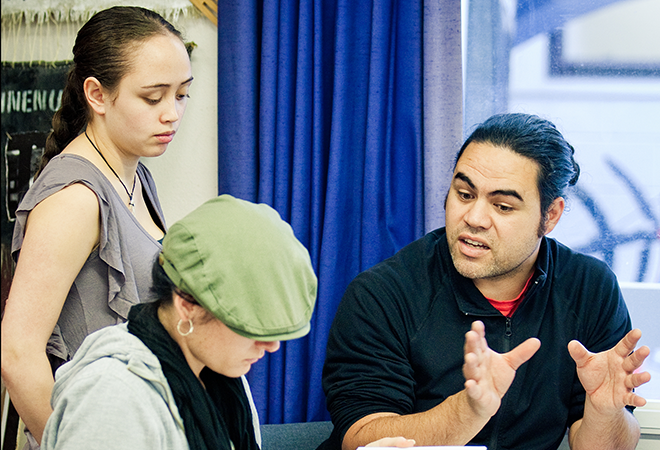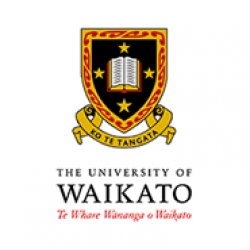
Bridging to tertiary study: A support resource for academic writing in English for Māori students
Status
Completed: 30 May 2015
Project Details
A two-month project, undertaken by The University of Waikato, to provide support for Māori students, particularly those involved in study at first degree level, who need to develop skills in writing assignments in English in a range of academic subjects.
Aims:
The aims of the project were to:
- assist Māori students by designing and trialling a number of units (4) of a self-access English academic writing resource intended primarily for Māori students and centring on issues of relevance and significance to Māori
- measure the extent to which a tailor-made series of academic writing units could support the English writing skills of Māori students entering tertiary study and/or of Māori students who were already enrolled in tertiary study but experiencing low levels of success
- make a contribution to the capacity of Māori students to respond appropriately to the English writing demands that are made of them in tertiary education contexts and to support staff who assist them in doing so.
Methodology:
A qualitative approach was taken which included:
- an online anonymous survey questionnaire to evaluate aspects of the project
- focus group discussions and semi-structured interviews with students to provide responses to the trial units.
Team

Dr Diane Johnson
Project Leader
The University of Waikato
Dr Sophie Nock
The University of WaikatoStatus
Funding
$129,076.00 (excl GST)
Key Findings
The project findings indicate that:
- The students found the approach to supporting engagement in, and enhancement of, academic writing instruction in English very useful and interesting even though, as members of the digital native generation they did not always find the delivery mode ideal.
- The majority of students experienced difficulties when writing academic assignments in English due to: lack of writing skills and knowledge to produce appropriate academic assignments; difficulty with understanding and using subject related terminology; low self-esteem and confidence; being unwilling to share their difficulties with others, particularly with lecturers, for fear of being judged and feeling embarrassed; and lack of understanding of assignment instructions and teacher expectations for assignments.
- The majority of participants indicated they found the 4 learning units ‘very interesting’ and/or ‘very useful’. The reasons for the students’ very positive responses included: the facilitation of good writing practices; time being allowed for students to study in their own time and their own work place; help with motivation and self-confidence, and interaction with tutors; help with the development of an understanding of academic writing principles in a simple way; help with revision, and referencing; and clarification of terminology and concepts associated with writing assignments in English.
Key Recommendations
The very positive reactions from the project participants have led to a number of specific recommendations that the project team wishes to advance:
Expand the current resource | There would be value in seeking to expand the current resource into a complete English language-based academic writing resource with extra units that cover additional aspects of academic writing. It is envisaged that an expanded resource, building on the units already developed, would include a wide range of model texts and writing tasks, would start very simply and build gradually towards the creation of fully referenced sample academic assignments.
Delivery mode | Any future development of the resource considers the issue of the delivery mode of this type of material. While the students found the approach to supporting engagement in, and enhancement of, academic writing instruction in English adopted in this project to be very useful and interesting, it is equally clear that the delivery mode did not always directly appeal to students who belong to a digital native generation. In itself, the question of delivery mode provides scope for further investigation and the basis for a future research project.
Overcoming students’ resistance to seek help | Tertiary providers be made aware of the fact that this group, which undoubtedly is representative of Māori students across the sector, expressed strong feelings of resistance to asking for help from the sources at the institution. The development of effective strategies to combat this resistance could provide the basis for further research activity.
Availability of project findings | The findings which emerged from the overall project be made available through future seminars or workshops.
A project report prepared by Diane Johnson and Sophie Nock.
(PDF, 1.1 MB, 17-pages).
- 11 August 2016
A project report with resources prepared by Diane Johnson and Sophie Nock.
(PDF, 5.54 MB, 206-pages).
- 11 August 2016
A resource prepared by Diane Johnson and Sophie Nock.
(PDF, 3.4MB, 40-pages).
- 20 December 2015
A resource prepared by Diane Johnson and Sophie Nock.
(PDF, 4.9MB, 64-pages).
- 20 December 2015
A resource prepared by Diane Johnson and Sophie Nock.
(PDF, 4.5MB, 58-pages).
- 20 December 2015
A resource prepared by Diane Johnson and Sophie Nock.
(PDF, 1.9MB, 23-pages).
- 20 December 2015